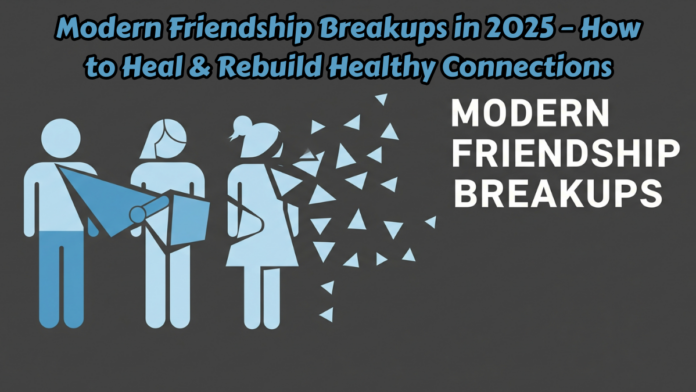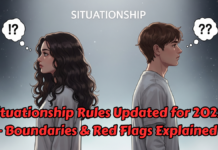Friendship breakups can be just as painful as romantic ones, yet they often receive less attention. In 2025, shifting social dynamics, digital communication, and evolving personal priorities have made modern friendship breakups more common. Whether due to misaligned values, emotional distance, or unresolved conflicts, losing a close friend can be deeply challenging. However, with the right approach, emotional healing is possible, and new, healthier connections can be built.
Why Friendship Breakups Are More Common in 2025
1. Changing Social Priorities
People are increasingly prioritizing mental health and personal growth, leading to shifts in friendships that no longer align with their values.
2. Digital Communication & Distance
While technology connects us, it also creates emotional gaps. Miscommunication and lack of in-person interaction can weaken friendships.
3. Emotional Burnout & Boundaries
More individuals are recognizing the importance of setting boundaries, leading to the natural end of friendships that drain emotional energy.
4. The Friendship Recession
Studies show that people are spending less time with friends, leading to weaker bonds and more frequent friendship dissolutions.
How to Heal After a Friendship Breakup
1. Allow Yourself to Grieve
Friendship breakups can be emotionally intense. Acknowledge your feelings and give yourself time to process the loss.
2. Engage in Friendship Therapy
Seeking professional guidance or talking to a mentor can help navigate the emotional impact of losing a close friend.
3. Reflect on the Relationship
Consider what led to the breakup and identify lessons that can help you build stronger friendships in the future.
4. Avoid Blame & Resentment
Holding onto anger can prevent healing. Focus on acceptance and personal growth rather than dwelling on negativity.
5. Prioritize Emotional Healing
Engage in self-care activities such as journaling, meditation, or creative expression to process emotions.
Rebuilding Healthy Connections
1. Strengthen Existing Friendships
Invest time in relationships that bring positivity and mutual support.
2. Expand Your Social Circle
Join community groups, attend events, or explore new hobbies to meet like-minded individuals.
3. Set Clear Boundaries
Ensure new friendships are built on mutual respect and emotional balance.
4. Embrace Vulnerability
Authentic connections thrive when individuals feel safe expressing their emotions.
5. Learn from Past Experiences
Use insights from previous friendships to cultivate healthier, more fulfilling relationships.
FAQs About Modern Friendship Breakups 2025
1. Why are friendship breakups so painful?
Friendships provide emotional support and stability, making their loss deeply impactful.
2. How can I move on from a friendship breakup?
Focus on self-care, reflection, and building new connections that align with your values.
3. Is friendship therapy helpful after a breakup?
Yes! Therapy can provide guidance on emotional healing and rebuilding social connections.
4. How do I know when to end a friendship?
If a friendship consistently drains your energy or lacks mutual respect, it may be time to let go.
5. Can broken friendships be repaired?
In some cases, yes—if both individuals are willing to communicate and rebuild trust.
Conclusion
Modern friendship breakups 2025 reflect evolving social dynamics and personal growth. While losing a friend can be difficult, friendship therapy and emotional healing strategies can help navigate the transition. By prioritizing self-care, setting boundaries, and fostering new connections, individuals can rebuild stronger, healthier relationships that align with their well-being.




